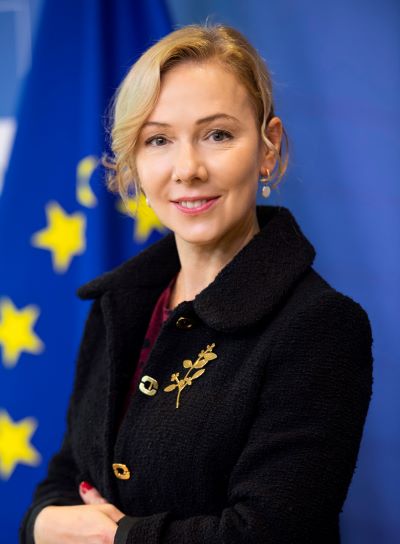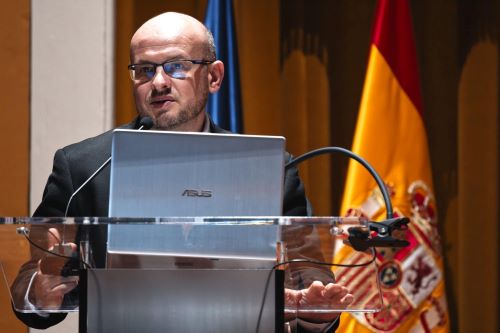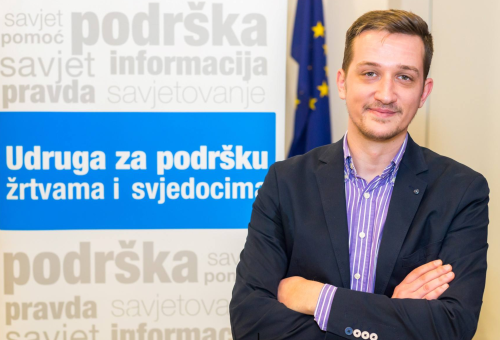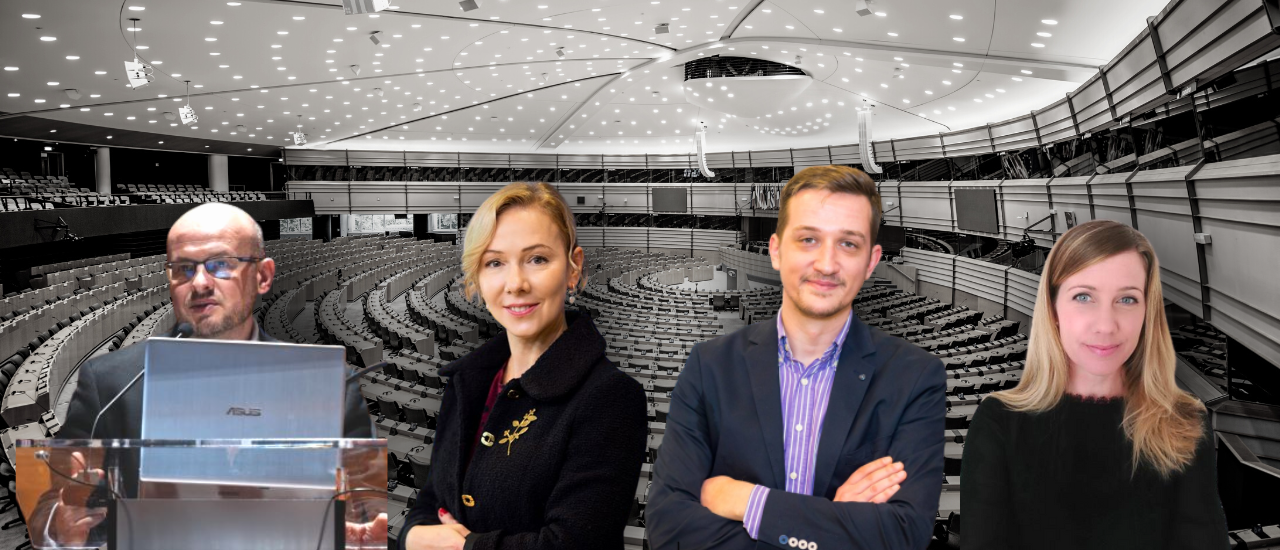In July 2023, the European Commission adopted a proposal to revise the Victims’ Rights Directive. The revision is accompanied by an impact assessment following an extensive consultation process and an evaluation of the Directive. Before any revision is adopted by the EU co-legislators, the amendments will be discussed in the European Parliament and the Council.
Victim Support Europe (VSE), in conjunction with its 78 member organisations, played an active role in the consultations leading to the adoption of the Commission’s proposal for the revision of the Victims’ Rights Directive. VSE also prepared its own assessment and published its vision for the Directive – the ‘Model Provisions Paper’. The paper details VSE’s proposals, which, according to the authors, will impact millions of EU citizens by recognising and addressing problems faced by victims following a crime. On publication of this important work, Levent Altan, Executive Director of Victim Support Europe, expressed his appreciation for the ongoing revision of the Victims’ Rights Directive. However, he underscored the need for further change, this being a once-in-a-decade opportunity to enhance support for victims of crime in the EU.
Below we explore the solutions proposed for the revision of the Victims’ Rights Directive by the Commission and in the VSE’s Model Provisions Paper. We also examine how the proposed changes impact wider issues of societal well-being and social cohesion.
European Commission’s commitment to victims’ rights

Katarzyna Janicka-Pawlowska, European Commission Coordinator for Victims’ Rights
When asked for a comment, Katarzyna Janicka-Pawlowska, the European Commission Coordinator for Victims’ Rights said: "Victims of crime are among the most vulnerable members of our societies. They need support, protection, and access to justice. The 2012 Victims’ Rights Directive provides for such rights to all victims of all crimes. Its evaluation shows that the instrument overall has been successful but punctual amendments in relation to each of the main victims’ rights under the Directive are necessary".
"The Commission’s proposal for the revision of the Victims’ Rights Directive provides for such punctual targeted amendments. They are ambitious and proportionate at the same time. We have achieved it by limiting the margin of discretion left to the Member States without going beyond what is necessary and by upgrading the minimum standards on victims’ rights to the current developments in society and technology”.
When asked about how the proposed amendments are expected to solve the problems, the Victims’ Rights Coordinator explains: “Once adopted, the amendments will bring more precision to victims’ rights. For example, in relation to victims’ right to information – the revision provides for an obligation to set up Victims’ Helplines that use the EU-wide 116 006 telephone number and are linked to comprehensive websites that, thanks to new technologies, will provide access to information in several languages and to persons with disabilities. Child victims will benefit from state-of-the-art multi-agency support, protection, and access to justice - all provided in a coordinated manner within the same premises. Another important amendment aims to ensure more satisfactory access to compensation from the offender; the proposal requests the Member States to intervene by advancing a payment of compensation to victims and by reclaiming it later from the offender”.
Janicka-Pawlowska also highlights the important role of civil society in shaping EU policy and legislation on victims’ rights. VSE’s Model Provisions Paper is a good example of such actions. “The solutions proposed by VSE are very ambitious, but it is healthy to be challenged. Victim support organisations have a special insight, through their everyday work; they see what works for victims and what doesn’t, they are the ones who know victims and their needs best. That is why the voice of victim support organisations is so important in shaping EU policy on victims’ rights”.
According to the Victims’ Rights Coordinator, the Model Provisions Paper includes many beneficial solutions. Even if they cannot all be realized through EU legislation, they can serve as good practices for the Member States. The setting up of national strategies on victims’ rights is a good example here. “Without a long-term vision and carefully prepared cooperation and coordination of all people encountering victims, we cannot genuinely improve the situation of those who suffered crime. In addition to the minimum standards established by the EU rules, we need comprehensive, strategic solutions, adapted to the situation of each Member State” – the Victims’ Rights Coordinator concludes.
How to use EU law for positive change in victim support

Levent Altan, Executive Director of Victim Support Europe
From the intricate landscape of victims' rights in the European Union, Levent Altan highlights the need for transformative change; he strongly believes that the Model Provisions Paper has a crucial role to play in reshaping victim support. Altan notes that: "With a staggering 75 million people, or 15% of the EU population, falling victim to serious crimes annually, the urgency to address these issues cannot be overstated. The complexities and challenges faced by victims and Member States demand a coordinated and comprehensive approach."
He commended the progress made through the Victims' Rights Directive but said, "Let's be honest about the implementation challenges. The system remains fragmented, ad hoc and inconsistent. Too often, victims’ rights are not seen as a priority. VSE is pushing to change this perception. Extensive research shows that the only way to achieve long term, meaningful change is by including the victims’ policy in the wider agendas of social justice, health and wellbeing of our citizens and communities. It’s about social cohesion and the resilience of societies in the face of trauma and change. VSE’s Model Provisions Paper translates these concepts into a legal and policy framework that the EU institutions and Member States can act on."
Altan passionately declares. “The vast majority of victims never report a crime to the police and never seek justice, but those who do, may suffer further harm as a result. Many face barriers in exercising their rights, accessing support, and making their voices heard. In simple terms, many of the rights established by the Victims’ Rights Directive are not put into practice by Member States. It's not uncommon for various victims to face similar challenges after a crime, and that's why the paper suggests solutions that cut across different victim groups”, says Altan.
“Let me share a brief but impactful story that illustrates the necessity of such solutions. Meet Astrid Passin, a victim of terrorism who lost her father at the Berlin Christmas market on December 19, 2016. At our annual conference this year, Astrid bravely shared her personal journey, unveiling the hurdles many face in the aftermath of such harrowing incidents. Her resilience in tackling bureaucratic obstacles and championing change is truly inspiring. She underscored the need for global collaboration, distinctions in legal frameworks, and the crucial role of a Victim Commissioner for those affected abroad. Astrid's story emphasises the call for comprehensive solutions that address the varied needs of victims in different situations. As we shape policies and provisions, let her story resonate, urging us to ensure no victim is left unsupported in their quest for justice and assistance."
Altan, then examines key areas outlined in the Model Provisions Paper: "At the heart of everything is a victim centric approach. This is translated into practical solutions such as properly addressing the situation of each victim, or enhancing protection measures in court, or ensuring that victims can have certain decisions about them reviewed. The change is that victims are seen as an active part of the system, and not tools to be used by others. Secondly, we emphasise the need for clearer, more detailed drafting of rights and obligations. Precision is crucial to ensure that Member States implement rights and do so in a consistent way. Thirdly, the Paper calls for the development of systemic solutions to enhance coordination, planning, and oversight. Finally, and perhaps most importantly, we aim to empower States, victims, and organisations through evidence, data, and enforcement to ensure the proper implementation of these amendments."
Altan concludes with a vision for the future: "The ultimate goal is to ensure that no victim is forgotten, and that no one falls through the gaps. We do this by creating a more just and supportive environment for victims."
Insights from the frontline: shaping national victims' rights strategies

Miren Špek, frontline support expert from the Victim and Witness Support Service, Croatia
Altan's insights are complemented by the reflections of Miren Špek, a frontline support expert from the Victim and Witness Support Service Croatia, who sheds light on the crucial role of the Model Provisions Paper in shaping national victims' rights strategies.
"As someone working on the frontline, I see the immediate impact of the current challenges in victims' support. The Model Provisions Paper offers not just theoretical solutions but a tangible support system for those affected by crime," Spek affirms. "Its emphasis on national victims' strategies aligns with the urgent need for a comprehensive approach”. In his daily work, Spek often confronts obstacles arising from fragmented systems. The Model Positions Paper’s call for effective communication frameworks and safe justice systems resonates deeply with him.
“As we currently advocate for the implementation of the first-ever national victims' strategy in Croatia, we're not just asking for change; we're advocating for a lifeline for those affected by crime".
"Comprehensive support frameworks are essential to those of us on the frontline, they ensure that no victim is overlooked, and that everyone receives the help they deserve. The Model Provisions Paper serves as a guide towards a more cohesive and effective national strategy on victims' rights. We can integrate the principles outlined in the Paper into our national framework. By adopting comprehensive support frameworks, effective communication strategies, and safe justice systems, we can build a resilient system that addresses the diverse needs of victims. The Model Provisions Paper gives us a roadmap on positive change, aligning seamlessly with our commitment to ensure that victims receive the support, protection, and justice they deserve."
Tailoring support in accordance with victims needs: case study highlighting the importance of holistic victim support

Frida Wheldon, frontline support expert from Victim Support Sweden
Frida Wheldon, a frontline victim support expert, sheds light on the struggles faced by survivors of gender-based violence in Sweden. She shares a story that reveals the difficulties encountered by crime victims and the fact that victims´ experiences can differ even within the same crime category.
"In my country, we're currently experiencing an increase in gang-related violence. Calls to our support service come not only from victims but also from concerned family members. Some are worried about their sons, unsure if they're victims or offenders. Others, mostly young women, are concerned about their boyfriends, fearing they might be in danger or caught up in conflicts. These women initially reach out as family members within the gang-related violence category, but during our conversations, it becomes clear that they themselves are victims of threats or violence from their boyfriends. The violence often extends into their intimate relationships, and we have seen an increased number of these victims also reporting asphyxiation during sex for instance. These experiences are tough to discuss, leaving these women scared for their lives. While they fit the definition of domestic violence victims, they don't see themselves as such and turn to us as family members. Victim Support Sweden becomes their choice because we cover all crime victims; including those of organised crime, which is prevalent in their environment. Our comprehensive approach allows us to identify trends and links between organised crime and the type of victimisation these women suffer, ensuring that our supporters ask relevant questions to assess their individual needs and provide tailored support for their unique circumstances," says Wheldon.
Frida's account emphasises the need for flexible victim support services that address the multifaceted nature of crime and violence, preventing any victim from falling through the gaps. Her story highlights the critical role of a comprehensive approach to victims' rights.
As the EU co-legislators contemplate the revision of the Victims' Rights Directive, the Model Provisions Paper adds to the Commission’s proposal in its search for meaningful change. More than a decade since the directive's inception, there is an urgent need for significant improvements to ensure that all victims in the EU can fully benefit from their EU rights. The Model Provisions Paper offers a roadmap for the European Commission, Members of the European Parliament, Member States, Civil Society, and victims themselves to enact impactful laws and policies that will shape a more just and supportive future for victims of crime in the European Union.
Now is the time for change!
Promoted by Victim Support Europe

